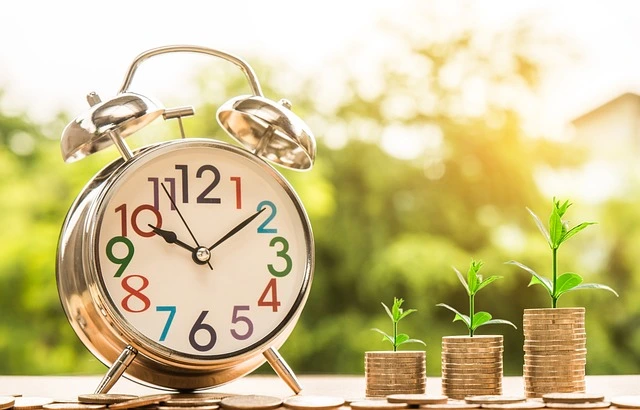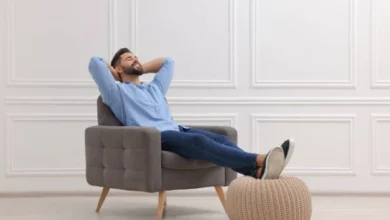Why you should give up unnecessary things

You don’t have to be an inveterate minimalist to feel the benefits of being free from the clutter of things. Getting rid of excess, you can get much more than not having to clean every day. Here are nine things that come up when you minimize the number of things.
9 Benefits of giving up unnecessary things
1. Courage to live differently
If your family had a course on hoarding, it’s hard to imagine a completely different approach to life. It would help if you were brave and self-confident to go against the beliefs that you have held for many years. But, having tried minimalism yourself, you will feel how determined you are.
Only some people can take and change something familiar. After removing unnecessary things, you will notice a lot of joy in having less. You may no longer want to return to your “old self” and fall into the trap of materialism again.
2. Time and money

One of the first and most noticeable benefits of having fewer things is saving time and money. You spend less time cleaning and caring for what you have, organizing space, and shopping, freeing up precious hours you can use for yourself and your family.
Financially, a small number of things save a significant amount of money. By giving up unnecessary purchases, you can save money for something more necessary or meaningful and spend it on impressions.
3. Freedom to follow your hobbies
With fewer things to manage, we can explore our passions more deeply. Whether it’s hobbies, traveling, volunteering, a career, or communicating with those you care about, minimalism gives you the space and clarity to focus on what’s important.
4. A deeper understanding of oneself

You can draw many conclusions about your personality by thinking about what you need and what you are ready to say goodbye to. For example, to realize what life values and priorities you adhere to. You can also “dig into” your lifestyle and discover what changes you have craved for a long time.
In addition, there are many reasons why we accumulate more things than we need, and only a few of them are healthy. For the most part, they indicate fear and discontent.
Let’s list some of the most common reasons why there is a lot of excess in your house: lack of a sense of security; lack of happiness, which leads to the feeling that things will help you feel better; high susceptibility to advertising; desire to impress other people; envy of those who live better; self-doubt and an attempt to compensate for shortcomings with what you have; – selfishness. Having figured out the reasons for hoarding, you can kill two birds with one stone: grow up as a person and get rid of the mess. If, of course, you put enough effort and time into it.
5. Big dreams

Having less allows us to dream of more. It’s easy to determine success by how many things you have in use. But there’s more to life than just the items you have at home. As soon as the desire to possess material things slows down, you will feel open to new opportunities and begin to set higher goals. And you will be able to achieve them since your life will have fewer deterrents and distractions.
6. Experience something unforgettable
Minimalism opens the door to more memorable experiences for you and your family. With fewer things and more money, you can focus on what will make your soul tremble. Small and large, pleasures bring us more than just impressions and pleasant memories — they fill life with warmth and light. Spending a lot of money on something that will bring joy and save things for its sake is unnecessary.
7. Healthy skepticism
Minimalism gives a more critical look at some of the features of our culture. When eliminating unnecessary things, you must work on another critical quality — healthy skepticism.
He helps not to fall for the tricks of marketers and not run to the store just because he saw the word “discount.” Without succumbing to advertising promises and beautiful slogans, you learn to focus only on your priorities and not waste money. Such discrimination helps to develop critical thinking, which is helpful in any aspect of life — from work to relationships.
8. The development of generosity

When you put your house and life in order, you become more aware of how much you have, especially compared to others. Minimalism paves the way for generosity, an excellent character quality worth developing.
First, you can give what you don’t need to happy and grateful people. It’s an excellent way to realize how much caring for others means and how nice it is to give, not just receive. Getting rid of unnecessary things contributes to becoming a good person. Why not use it?
9. Foresight in all spheres of life
Foresight is the ability to reflect on what consequences of actions will occur immediately after you commit them and in the future. When you consciously relate to the things you have, it affects other aspects of your life. Here is a simple example: You’ve trained yourself to think three times before buying this or that thing.
You wonder if it is helpful for you, whether it will bring joy or eventually become a burden you must get rid of. Maybe you’ll start thinking the same way when you meet people.
You will analyze how much you like your new friend, think about what qualities of his character you find unpleasant, and also analyze his behavior to understand whether you want to communicate with him. Thus, mindfulness and foresight, which began with a minimalistic attitude to things, can be an excellent assistant in choosing only meaningful social connections.




